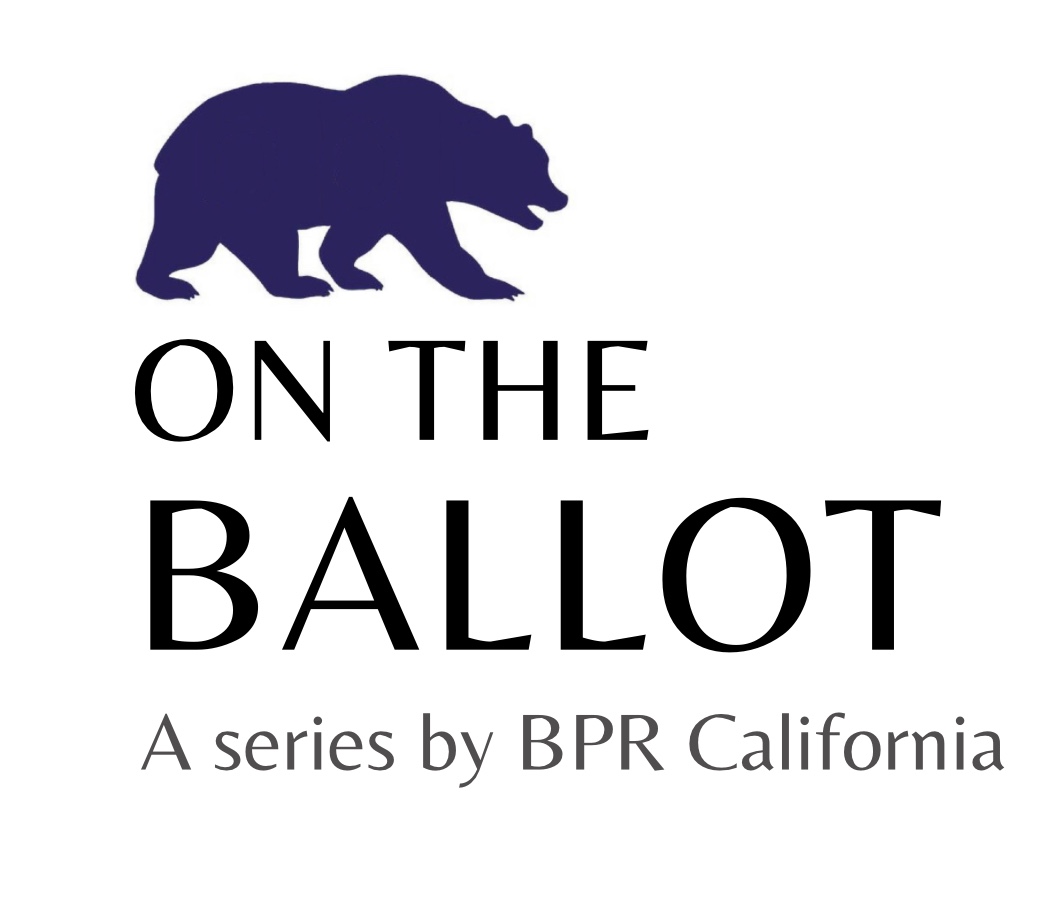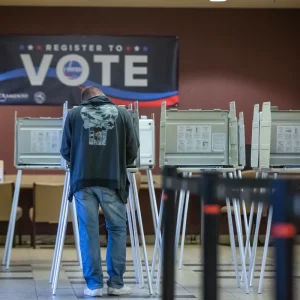This November, one line could change California dramatically. Proposition 16 reads simply “That Section 31 of Article 1 [of the California Constitution] thereof is repealed”. And yet on a ballot packed full of controversial issues, Proposition 16 could be the most controversial of them all. In this installment of On the Ballot, we discuss Affirmative Action, and what it could mean for California.
Proposition 16, if passed, would repeal a constitutional amendment created by Proposition 209 of 1996. This amendment reads “The State shall not discriminate against, or grant preferential treatment to, any individual or group on the basis of race, sex, color, ethnicity, or national origin in the operation of public employment, public education, or public contracting.” In short, Proposition 209 marked the end of affirmative action in California.
Affirmative action policies have been around since the passage of the Civil Rights Act. Simply defined, “an affirmative action program seeks to remedy the significant underrepresentation of members of certain racial, ethnic, or other groups through measures that take group membership or identity into account” (Brest and Oshige 1995). President Lyndon B. Johnson justified these policies by saying “You do not take a person who, for years, has been hobbled by chains and liberate him, bring him up to the starting line of a race and then say, ‘You are free to compete with all the others,’ and still justly believe that you have been completely fair.” Affirmative action policies are designed to remediate historic injustices to ensure equal opportunity for all.
These policies have had a long, complicated, and contentious history, and much of that history has been tied with the University of California. In fact, Proposition 209 was passed in the wake of a landmark Supreme Court case on affirmative action with the university system.
The Regents of the University of California Davis v. Bakke was the first real challenge to affirmative action. In this case, the Supreme Court held that reserving a set number of seats for certain groups constituted a quota system, which is unconstitutional. Likewise, in Gratz v. Bollinger, regarding the University of Michigan, it was held that automatically granting an advantage based on race would be considered a quota as well. Specifically, the policy challenged in Gratz gave identified groups points towards admission (one-fifth of the point value required for admission), which the courts held was too broad and significant of an advantage. However, in the cases of Fisher v. University of Texas at Austin and Grutter v. Bollinger, it was affirmed that diversity in education still remains a compelling state interest, as long as policies are narrowly tailored in their aid to URM students.
Prop 209 has had numerous impacts, both in the workplace and on campuses. Women- and minority-owned businesses lost an estimated $1bn in government contracts annually since its passage, most of which came from state contracts. More relevant to Berkeley, however, is the fact that admittance and enrollment of underrepresented minorities (URM) at public universities has fallen since the inception of this bill, despite attempts by those schools to circumnavigate affirmative action bans.
All figures from 2018, showing admission for freshmen 2018 cohort. UC System, UCLA, and UCB data from UC Admissions data; CSU data from CSU admissions (on file with author); Cal Poly SLO data from Polyview; CSU Long Beach Data from CSULB Admissions; CA HS graduates from California Department of Education.
In California, the number of URM high school graduates has risen to over 50 percent of all graduates in 2018, but those enrolled in the UC, CSU, and especially the more prestigious universities has fallen relative to their non-URM counterparts. Despite rising applications to these universities, admittance of Latino, black, and Native American students has been gradually falling ever since the passage of Prop 209. To rectify this, California enacted a policy guaranteeing all students graduating in the top 4 percent of their high school admittance to a UC campus. Clearly, this policy has not rectified these issues, but that does not mean it has not had an impact on URM students. UC Merced has seen a spike in enrollment of URM students since the enactment of this policy, despite the lowering enrollment rate of other campuses. This suggests a worrying ‘funneling’ of URM students to one specific campus. If this is a deliberate consequence of the policy, affirmative action policies are needed to ensure that URM students are not relegated to one campus with less resources and reputation, which can harm their educational outcomes.
The big question of this ballot measure is, of course, will affirmative action benefit California? Answers to this question, however, are inconclusive. Many studies point to the benefits of diverse learning environments, to the increased wages, mobility, and prospects of minorities after admission to these schools. Once Prop 209 was passed, not only were minority applicants less likely to apply and receive wage value-added benefits in their later lives, but URM students’ actual wages and probability of earning over $100,000 fell.
Others, however, claim that affirmative action will lead to mismatch, or identity-based grouping that undermine a unified campus environment. One 2004 study claimed that African American law students would be better served by the absence of affirmative action policies, and that these policies in fact harm their job prospects, their chances of passing bar exams, and even their graduation rates. This study is highly controversial, with further analysis disputing these findings. In particular, the role of affirmative action in shaping diverse campus environments in which minority students are not ostracized, have communities to support them, and can feel comfortable and not out-of-place, cannot be overestimated, both in terms of degree persistence and class performance. However, Sander’s study does raise valid concerns over unintended consequences deriving from poorly executed affirmative action policies.
This does not mean that affirmative action is not a worthwhile goal. Diversity is valued both in workforces and on campuses. Diversity brings with it new ideas, perspectives and skills that will better all students on campus. In addition, affirmative action is an important component in reducing the racial wealth gap, as the wage expectancy for those with college degrees is typically higher than those without. Well-constructed affirmative action policies will bring benefits to campus while also promoting equity and justice.
Other criticisms of affirmative action include its focus on racial groups, rather than socioeconomic ones. Regardless of race, those of low socioeconomic status face great challenges in college admissions. And often, race and socioeconomic status are linked, so socioeconomic affirmative action policies could theoretically also increase diversity. However, in most implementations, socioeconomic affirmative action favors white recipients. Socioeconomic focused policies will be important to rectify challenges faced by low income students, but they cannot be used as a pure substitute for affirmative action, nor can race-focused policies completely eliminate socioeconomic disparity.
Much of the discussion around this bill is predicated on the merits of particular affirmative action policies, but this is, frankly speaking, not a helpful argument to have. Nothing in this proposition guarantees the enactment of affirmative action. It will only give state employers and public universities the option to enact affirmative action plans, and the specific details of each policy will be left up to the specific organization, should they choose to enact affirmative action.
Existing laws and policies give us insight into what these policies could look like, and that allows us to understand their efficacy. Affirmative action policies will most likely treat group membership as another “unquantifiable” portion of your application. Much like your leadership potential, your essay responses, or your extracurriculars, group membership will be considered as a reason for admission, without necessarily guaranteeing it. However, affirmative will not and cannot take the form of reserved seats for certain groups, nor will it mean that certain groups carry a de facto advantage going into applications.
Affirmative action, however, is not going to solve the issues of diversity single handedly. It may not even contribute. Issues of so-called mismatch, or a lack of preparedness, occur when students do not have access to the resources and knowledge other students do. Campus support can close this gap, but the best way is to improve pre-college education universally. Likewise, if affirmative action policies are not thoughtfully constructed, we may not see significant increases in diversity. This does not mean that the concept of affirmative action is a failure, only that specific policies must be improved.
Until now, this article has sought to present an unbiased perspective of the benefits and drawbacks of affirmative action. To close, I want to bring things to a personal level. I am a mixed-race student of two overrepresented groups, of both Korean and White ancestry. I’ve already made it to Berkeley, but working in state government is something I am considering. Likewise, my brother, now a junior in high school, will soon be applying to colleges — many of which are public — in California.
Going to a predominantly Asian high school, I’ve heard countless times fears of affirmative action, that ‘our’ places at prestigious universities will be taken from us by other people because their identity is less common than ours. The word “less-deserving” may not have been spoken, but I could hear it all the same. I understand this viewpoint, but frankly, this position is the product of a fundamental misconception of affirmative action caused by misleading rhetoric. Diversity is a recognized interest of the state, both in the workforce, and on campuses.
We do not ban employers’ preferences for more experienced employees, as their employment is in the company’s best interest. Why should we do so on the pretense of identity? Affirmative action has been caught up in the rhetoric of discrimination, prejudice and social justice. Diversity instead should be seen like athletic talent, like test scores, or like extracurriculars: yet another metric for employers and for universities to evaluate candidates on to allow them to pick the candidate who will bring the most benefit. Affirmative action does not take places from others any more than recruiting those with more extracurriculars or recruiting marching band members or athletes.
So the question I’ve been coming to, again and again as I write this article, is if affirmative action does work, if it is needed, and if it is enacted, should I vote for it? On one hand, the institutionalist in me says that even if I do not personally benefit, I should work for the greater good of California. Yet is it not the voter’s prerogative to attempt to shape government to their own whims? Through millions of votes, do those individual whims not become one collective vox populi, and thus shape the legitimacy of our government? Shouldn’t I, then, vote not for what is best for the State, but best for me and my family?
This bill is not for me to decide. It is for all of us to do so, together. I have been struggling between my desire to see California become a more equitable place and my concern over my personal loss. I’m not sharing how I will vote, but I can say this much: I’ve been fortunate in my life to not face many of the challenges minority students have. Shouldn’t I seek to level that playing field?





Comments are closed.